5 Food Fixes & 3 Triggers to Avoid for a Happy Holiday Season!
Food can be your ally or enemy when it comes to stress. Not only do we often over- or under-consume when we’re feeling stressed, but the actual foods we ingest may have an adverse physiological effect on the levels of feel-good hormones, like serotonin, and anxiety-amplifying hormones, like cortisol, found in our bodies. So what foods should you seek out or avoid when elements of your personal and/or professional life are wearing you down?
5 Foods Fixes to Fight Stress:
- High-fiber, complex carbs: Good grains like quinoa, oatmeal and farro will soothe your mood without bringing you down.
- Foods rich in vitamin B: B-vitamins have been shown to have a calming effect on your mind and body. Go for the gold with foods like beans and lentils, and the ever-tasty avocado.
- Foods rich in vitamins A and C, and folate: These vitamins and minerals help give you more energy and repair cell damage caused by stress. Aim to incorporate kale, red peppers, carrots and other good-mood fruits and vegetables into your diet on a daily basis to ward off anxiety.
- Magnesium-rich foods: This mineral helps muscles relax, stimulates production of GABA, a neurotransmitter that eases anxiety and nervousness, and helps you fall asleep. Spinach is your best friend here. Just one cup has 40% of your daily value. Seeds, bananas and low-fat dairy will also do the trick.
- Foods full of antioxidants: These powerful, disease-fighting phytochemicals help fight the damage that cortisol does to brain cells and memory, and melting away stress. Blueberries, unsweetened cherries and dark chocolate (70-85% cacao minimum) are all good foods to have on hand for an instant mood boost.
3 Triggers to Avoid:
- High-fat foods: Fatty meat, heavy cheeses and dense baked goods can make you feel lethargic and are not the best calories to consume if you want to reduce your stress levels. Food-induced fatigue will not lighten your load and will also hamper your attempts at exercise–which stimulates serotonin production and can counter the effects of anxiety.
- Caffeine: While a cup of coffee (or five) may give you a feel-good buzz it can also interfere with proper sleep. Caffeine sits in your system longer than you realize and the withdrawal period when you miss your morning cup can leave you feeling low and lousy. It may take a while to wean yourself off of the jet fuel, but ultimately you’ll feel better with less peaks and valleys if you can manage to cut back.
- Refined sugar: Carbs can be a mood-booster, but refined sugar is a simple carbohydrate, which means it enters and leaves the bloodstream super-fast. Parents know that after every good sugar high there is always a “crash.”


